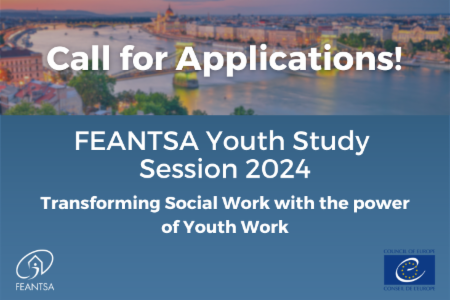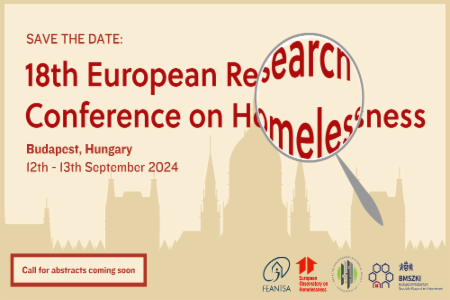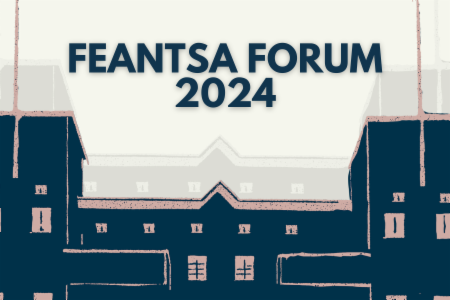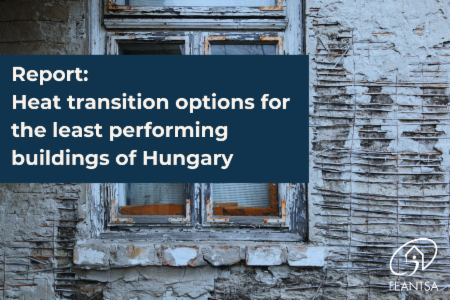STATEMENT
Homelessness among LGBTIQ+ people in Europe should be tackled urgently
17th of May - International Day Against LGBTQIA+ Discrimination
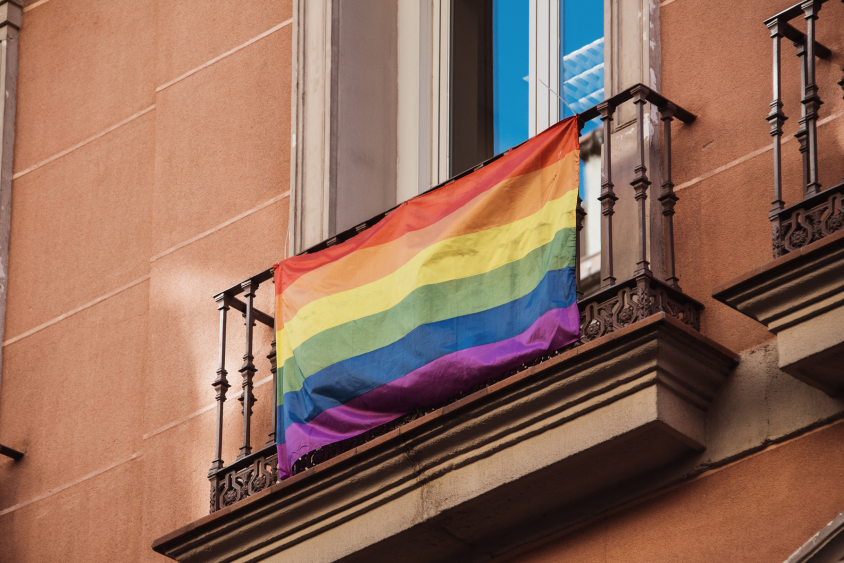
Download the statement here (PDF)
The 17th of May marks the International Day Against Homophobia, Biphobia and Transphobia (IDAHOBIT). This date is an occasion to celebrate LGBTIQ+ diverse identities, but also to raise awareness about LGBTIQ+ rights and denounce ongoing violations and discrimination. It is important to remind ourselves that it was only on May 17th 1990 that homosexuality was removed from the International Classification of Diseases of the World Health Organization (WHO), which is why the annual marking of IDAHOBIT takes place on this day.
Despite great improvements for the LGBTIQ+ communities in Europe since 1990, discrimination based on sexual orientation, gender identity or expression, and sex characteristics (SOGIESC) are still experienced by too many people. The latest available data, published by the Fundamental Rights Agency from a 2023 survey, confirm that equality is still far off. Over one third of LGBTIQ+ people in Europe face discrimination in their daily life, and about the same percentage have had suicidal thoughts, increasing to more than 50% for trans, non-binary and gender-diverse people. Unfortunately, it seems the situation has worsened in many respects since the previous survey of 2019. For example, more than half of the people in 2023 said they have been victims of hate-motivated harassment, compared to one third in 2019.[1]
Regarding homelessness among LGBTIQ+ people, which the same survey also asks about, the numbers are gloomy. Almost one in every five people surveyed in 2023 (18.7%) had experienced homelessness[2] at least once in their life: 12.9% had to stay with friends and relatives temporarily, 2.7% had to stay in inadequate accommodation - that is, a place not intended as a home, 2% in emergency or temporary accommodation, and 1.1% had to sleep ‘rough’ or in public spaces. This is slightly worse than in 2019, when 17% of the people reported having experienced at least one of these housing difficulties.[3]
The picture is even darker when looking at specific groups within the LGBTIQ+ population: homelessness has been experienced by over one third of intersex people (34.2%) and of trans women (31%), and by 29% of non-binary and gender-diverse people. Access to the original database, which we hope will be made public by FRA in 2025, will allow for a more in-depth analysis.
When compared to data on the general population, it becomes evident that non-normative SOGIESC[4] has a considerable, disproportionate impact on material living conditions of LGBTIQ+ people, including housing. While data from Eurostat in 2018 revealed that 4% of Europeans experienced one of the four types of homelessness mentioned above, this is almost five times less than among LGBTIQ+ people. Likewise, FEANTSA estimated that approximately 0.2% of the EU population in 2023 were either living rough, in emergency accommodation or in accommodation for the homeless,[5] while 3.1% of LGBTIQ+ people in the FRA 2023 survey reported either having slept rough or in emergency accommodation.
We should not forget that behind these numbers there are individuals deprived of their right to human dignity, as homelessness is one of the most acute violations of human rights. Having stable and safe housing is essential to develop oneself and a pre-condition for the enjoyment of many other human rights. As long as LGBTIQ+ people are more exposed to destitution and homelessness as a result of having non-normative SOGIESC, the EU framing itself as ‘Union of equality’ will mean nothing but empty words.
In celebration of the LGBTIQ+ identities, but also in recalling the ongoing struggles experienced by too many LGTBIQ+ people, the European Federation of National Organisations Working with the Homeless (FEANTSA):
- Stands by individuals who are more exposed to violence, discrimination and destitution simply because of their LGBTIQ+ identities.
- Underlines the need for CSOs and society to step up our efforts in combatting anti-LGBTIQ+ policies, laws, and narratives, in a concerning landscape of rising far-right forces in Europe.
- Stresses that the right to housing is a human right that should be ensured for all individuals, regardless of their SOGIESC or other characteristics.
- Recommends services for people in homelessness to make organisational changes so they become more LGBTIQ+-inclusive. Likewise, policies and funds to tackle homelessness should take account of LGBTIQ+ people, who are too often not considered.
- Invites policy makers at EU and national levels to include housing conditions and homelessness in their LGBTIQ+ equality strategies, regretting this was not the case in the EU’s first-ever LGBTIQ equality strategy for 2020-2025.
[1] FRA (2024). “LGBTIQ survey: Harassment and violence against LGBTIQ people on the rise”
[2] Following the ETHOS categorisation, i.e., the European Typology of Homelessness and Housing Exclusion. It was developed by FEANTSA as a transnational framework definition for policy and practice purposes.
[3] FRA (2024), “LGBTIQ equality at a crossroads: Progress and challenges”
[4] Sexual orientation, gender identity and expression, and sex characteristics
[5] FEANTSA (2023) “8th Overview of Housing Exclusion in Europe”


